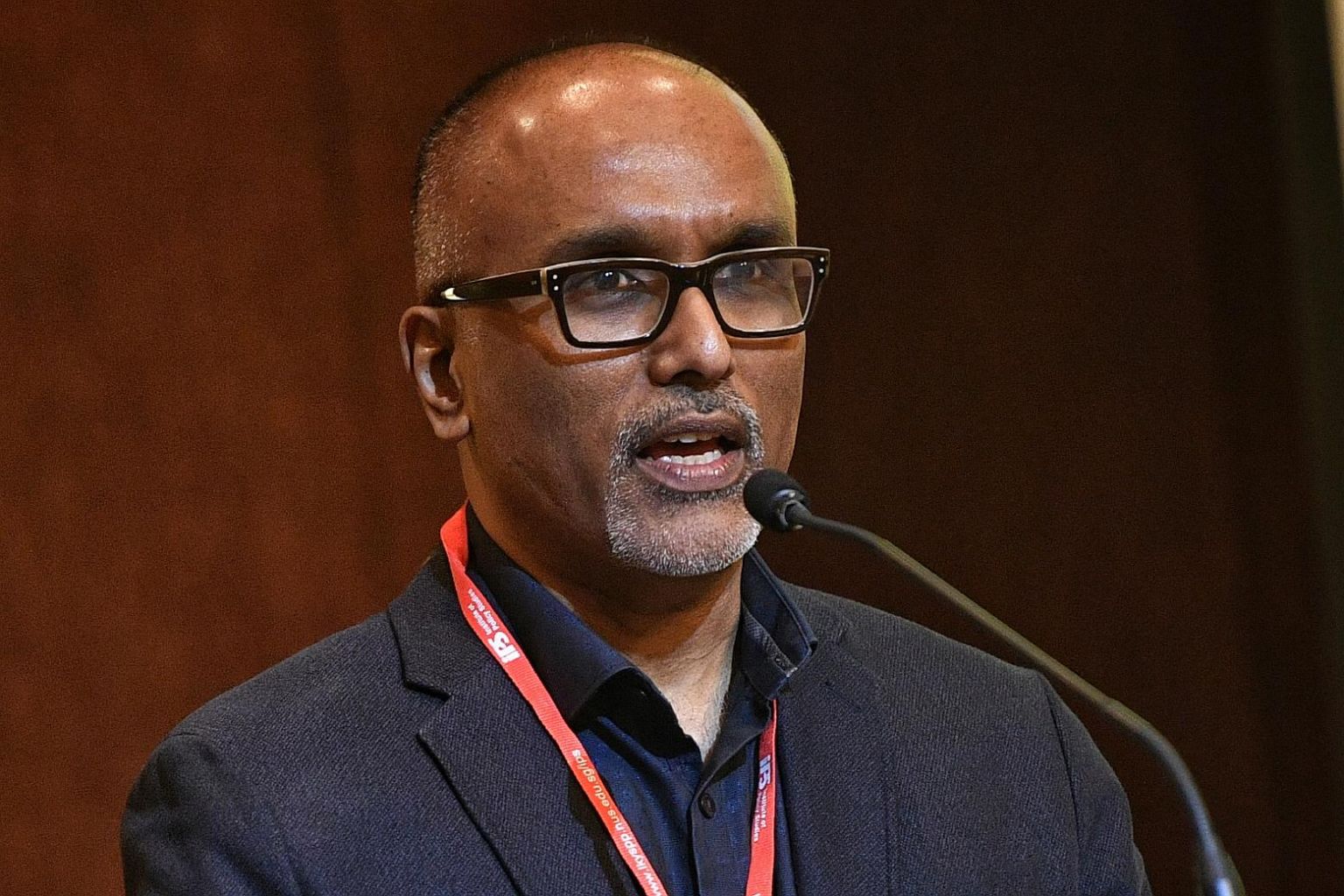Move away from stance that diversity is a weakness for Singapore: Cherian George
Sign up now: Get ST's newsletters delivered to your inbox

File photo of professor Cherian George. Prof George said the Government has been trying to be in the middle on certain important issues, and that this is an ideological choice and not a neutral one.
PHOTO: ST FILE
SINGAPORE - Singapore's political leadership needs to move away from the narrative that race and religion are fault lines that make the country vulnerable, said Hong Kong Baptist University media professor Cherian George on Friday (Oct 26).
"That is partly true, but it is surely not the whole story," Prof George said. "We need to move towards what is in fact a reality - that racial and other forms of diversity are, in fact, a source of what makes Singapore wonderful."
He added: "The overwhelming message is that these are fault lines that cannot be wished away, which means that diversity is overwhelmingly a risk factor... As long as that's the case, we are not going to get far."
Prof George was giving his views at a panel discussion on the politics of diversity management, alongside Senior Minister of State for Transport and Communications and Information Janil Puthucheary. The panel was chaired by Associate Professor Suzaina Kadir, who is vice-dean of academic affairs at the Lee Kuan Yew School of Public Policy.
The dialogue, which surfaced differing views over issues like race, religion and sexual orientation, was part of a conference held at Marina Bay Sands to mark the Institute of Policy Studies' 30th anniversary. It attracted 820 people, including academics and tertiary students.
In his speech, Dr Janil said Singapore deals with issues of diversity differently, depending on what is at stake. These include, for example, how an issue might be politicised or how it could influence the economic opportunities of those affected by it.
But the primary outcome, he added, is to achieve "an increasingly cohesive society, through an increasingly enlarged common space, together with a shared sense of progress".
To make progress in this area, he added, issues must not be framed as a zero-sum game with winners and losers. And historically, the Government has not approached issues such as race, language and religion as a zero-sum game, he said.
"Could you imagine a sense of cohesion today if, in each of these dimensions, there were winners and losers?" Dr Janil said. "We want and we need progress around equality, around diversity, without the sense of anyone losing - and our approach thus far has worked."
Both men also crossed swords on the issue of the Government's attitude towards the lesbian, gay, bisexual and transgender (LGBT) community, after one audience member pointed out that this group is not well represented on local television, which does not help foster constructive dialogue.
Dr Janil replied that before the mainstream media tackles such topics, people must first be able to have a constructive dialogue in person.
"I don't know that we are there yet," he said, adding that dialogue on this topic has been very polarised to date. "We need to find a way to have a conversation about this where people are not vilified or demonised in either direction."
Responding to Dr Janil, Prof George pointed out that under other circumstances, the Government has not hesitated to lead the way on other issues where it saw fit.
"The Singapore Government didn't wait for the majority of Singaporeans to agree that spitting is not a good thing... before it took action," he said. "It led from the front, often using a great amount of force and coercion."
Prof George added that the Government has been trying to be in the middle on certain important issues, and that this is an ideological choice and not a neutral one.
"If you look at the conservative-progressive spectrum on many of these issues where the Government says that it is just playing a referee, in fact it is not," he said. "It is a biased referee."
In response, Dr Janil said: "I think that many of these are practical, pragmatic political choices."
"It is the selectivity of coercion, the selectivity of liberalisation, that is worrying," Prof George replied. "But, of course, if indeed that is the Government's position, then come out and say it."


